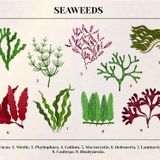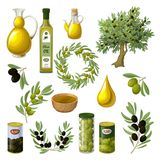Severe and life-threatening conditions
Appendicitis: This condition occurs when the appendix, a small organ attached to the colon, becomes inflamed and infected. Symptoms of appendicitis include abdominal pain, fever and vomiting. If left untreated, appendicitis can lead to rupture of the appendix, which can be life-threatening.
Gallstones: Gallstones are hardened deposits that form in the gallbladder. They can cause severe abdominal pain, especially after consuming fatty food. If the gallstone blocks the bile duct, it can lead to inflammation and infection, which can be life-threatening.
Pancreatitis: This condition occurs when the pancreas becomes inflamed. Symptoms of pancreatitis include severe abdominal pain, nausea and vomiting. If left untreated, pancreatitis can cause complications such as organ failure, infection, and shock.
Bowel obstruction: Bowel obstruction can be caused by scarring, a tumor, or a foreign object. Symptoms of bowel obstruction include severe abdominal pain, constipation and vomiting. If left untreated, bowel obstruction can lead to organ damage and life-threatening complications.
Ulcerative colitis: This is a chronic inflammatory bowel disease that causes inflammation and ulcers in the digestive tract. Symptoms include abdominal pain, diarrhea and rectal bleeding. If left untreated, ulcerative colitis can lead to complications such as colon cancer and bowel perforation.
Diverticulitis: Diverticulitis is an inflammation or infection of small sacs that form in the lining of the digestive system. Symptoms include severe pain in the abdomen, fever and vomiting. If left untreated, diverticulitis can lead to complications such as abscesses, perforation, and sepsis.
Stomach cancer: Although rare, stomach cancer can cause abdominal pain, nausea, and vomiting. If left untreated, stomach cancer can spread to other parts of the body and become life-threatening.
Common causes of abdominal pain
Gastroesophageal reflux disease (GERD): GERD occurs when stomach acid flows back into the esophagus, causing heartburn and abdominal pain.
Irritable bowel syndrome (IBS): IBS is a common digestive disorder that can cause abdominal pain, bloating, and changes in bowel movement.
Food intolerance: Some foods can cause digestive discomfort and abdominal pain in people who are intolerant or allergic to them.
Menstrual cramps: Many women experience abdominal pain during their menstrual cycle.
Constipation: Constipation can cause abdominal pain and discomfort due to the accumulation of feces in the intestines.
Urinary tract infections (UTIs): Urinary tract infections can cause abdominal pain as well as pain or burning during urination.

Photo by Irene Ivantsova on Unsplash
Herbal and natural remedies
There are several natural remedies that can help relieve pain and discomfort in the abdomen. Here are a few options:
Ginger: Ginger: Ginger has anti-inflammatory properties and can help soothe digestive discomfort. You can try drinking ginger tea or taking ginger supplements.
Mint: Mint can help relax the muscles of the digestive tract, which can relieve abdominal pain and bloating. You can try drinking peppermint tea or taking peppermint oil supplements.
Chamomile: Chamomile is a natural anti-inflammatory that can help soothe abdominal pain and promote relaxation. You can try drinking chamomile tea or taking chamomile supplements.
Dill: Dill seeds contain compounds that can help relieve digestive discomfort and reduce inflammation. You can try drinking fennel tea or taking fennel supplements.
Licorice root: Licorice root has anti-inflammatory properties and can help relieve digestive discomfort. You can try drinking licorice root tea or taking licorice root supplements.
Aloe vera juice: Aloe vera juice can help soothe digestive discomfort and reduce inflammation. It is important to choose high-quality, pure aloe vera juice without added sugars or other ingredients.
What medications, allergies and foods can cause stomach pain.
- Nonsteroidal anti-inflammatory drugs (NSAIDs):
- Ibuprofen (active compound: ibuprofen)
- Naproxen (active compound: naproxen)
- Aspirin (active compound: acetylsalicylic acid)
- Penicillin (active compound: penicillin)
- Tetracycline (active compound: tetracycline)
- Erythromycin (active compound: erythromycin)
Steroids:
- Prednisone (active compound: prednisone)
- Hydrocortisone (active compound: hydrocortisone)
Opioid painkillers:
- Morphine (active compound: morphine)
- Codeine (active compound: codeine)
- Oxycodone (active compound: oxycodone)
- Iron additives (active compound: ferrous sulphate or ferrous gluconate)
Bisphosphonates (for osteoporosis):
- Alendronate (active compound: alendronate)
- Risedronate (active compound: risedronate)

Photo by Corleto Peanut butter on Unsplash
Allergies:
- Food allergies:
- Peanuts
- Tree nuts
- Fish
- Crustaceans
- Milk
- Eggs
- Soy
- Wheat
Drug allergies:
- Penicillin
- Sulfonamides
Foods:
- Spicy foods
- Fatty or fatty foods
- Fried foods
- Caffeine
- Carbonated drinks
- Alcohol
- Dairy products (lactose intolerance)
- Foods containing gluten (in case of sensitivity to gluten or celiac disease)
Gas forming foods:
- Bean
- Lentil
- Cabbage
- Broccoli
- Onion
- Carbonated drinks









